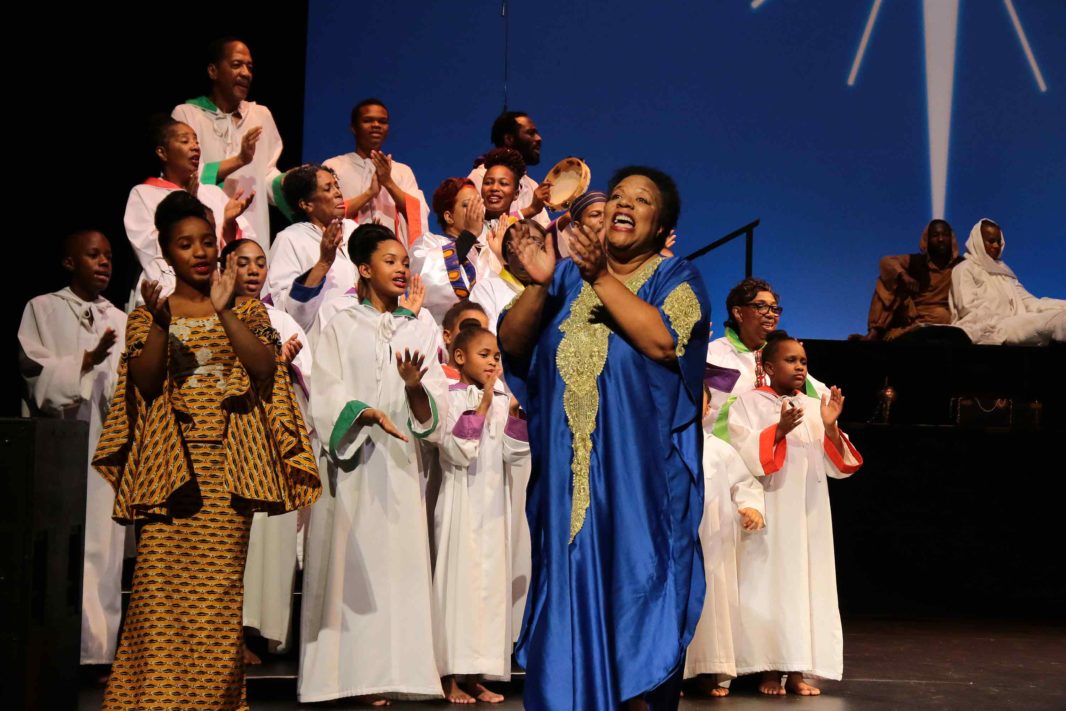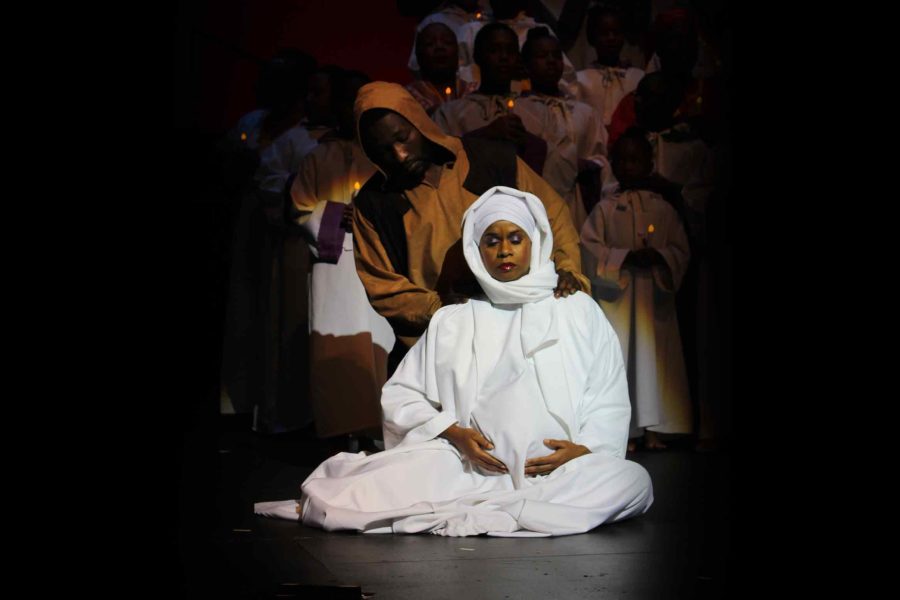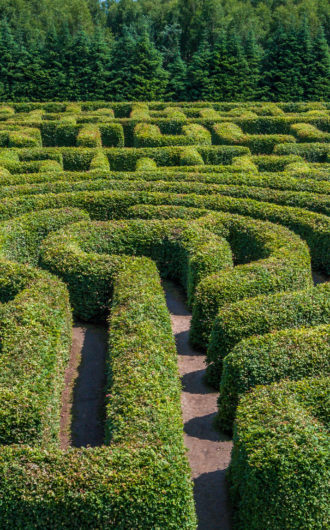Edmund Barry Gaither speaks passionately about a stunning local production that has been a harbinger of the Christmas season for the past 47 consecutive years. This year marks its 48th.
And, yet, many local families have never before been to see a performance.
The show? Langston Hughes’ gospel play “Black Nativity.” Hughes based “Black Nativity” on the Gospel of St. Luke, and it frames the Christian nativity story as a vehicle for contemporary beliefs.
“The show is a gift to the Boston community. We are proud of the goodwill the event fosters between the ensemble and the audience,” says Gaither, the Executive Director of the National Center of Afro-American Artists (NCAAA), which produces the piece. “Black Nativity” creates our own African-American story, helping to maintain a legacy with something that is uniquely ours.”
Structured as it is, “Black Nativity” was ahead of its time, combining dialogue, spirituals, carols, black speech patterns, African drumming and dance, with Gospel music as the unifying element.
Hughes was a luminary of the Harlem Renaissance, and his work was known for its realism. (He was also the famous author of myriad works that include poetry, novels, plays, children’s books and essays. His writings illustrate the reach of his talents, including a collection of short stories titled “The Ways of White Folks,” lyrics for the Kurt Weill Broadway show “Street Scene,” and the ironic, still topical, in-your-face poem, “Let America Be America Again.”)
When “Black Nativity” premiered in New York City, its script contained the spoken text, indicating where music should be placed, but did not specify precisely what most of the music should be, other than the few original songs.
But, Hughes was dissatisfied with the New York production. He set out to have it produced and directed in Boston.

Courtesy Black Nativity
Mildred E. Walker Washington and Ashley Villard lead the “Black Nativity” cast in singing “Joy to the World.”
A Roxbury-based doyenne of the Boston arts and educational scenes — who, incidentally received many honors, including a MacArthur (“Genius”) Award and a Presidential Medal for the Arts — Elma Lewis founded the NCAAA in 1968, in order to foster the finest in visual and performing arts from the people of color around the globe and became this version’s original producer and director.
John Andrew Ross, who knew Hughes as “Uncle Langston” — he was a college friend of Ross’ father and Hughes stayed with Ross’ family whenever in Boston — became its original Music Director.
Together, Hughes and Ross cooked up the idea of revising the script. Children were brought into the mix, adding an enchanting dimension to this new version. Hughes and Ross invited Babatunde Olatunji, the renowned Nigerian drummer, who was an alumnus of Morehouse and NYU universities, to create new music. Olatunji’s drum charts with James Brown and John Coltrane, among many others, might be thought of as the original “wall of sound.” George Howard, a student of Katherine Dunham, the noted choreographer, dancer, activist, and expert on Afro-Caribbean culture, added the choreography.
For his part, Howard accepted the challenge of the collaboration, saying “If I do it, Mary’s going to have that baby on stage!” She does.
Today, “Black Nativity” is performed annually across the country, and each production invents unique ingredients.
In Boston, Voncille Ross is its current producer and director, and she acts, too. Ross first joined the show at the age of 12, and she is now a mainstay of all its goings-on.
The production’s orchestra is made up of two pianists, an organist, two bass players and five drummers, bringing a wallop to collective sound. The cast includes 30 school-aged children. “A disciplined-fun atmosphere prevails,” says Ross. “The entire ensemble, onstage and off, has a meaningful experience. The kids fit right into our professional standards.”
Fifth-grader Malachi Nelson and already a veteran of “Black Nativity,” says, “My favorite part of the show is the dance between Mary and Joseph, and all of the drumming. It’s cool to be in a show like this.”
The Paramount Center at Emerson College
Dec. 7-23
Friday at 8 p.m., Saturday at 3:30 p.m. and 8 p.m., Sunday at 3:30 p.m.
$35-$47.50
559 Washington St., Boston
Downtown Crossing T stop or Boylston Street T stop



 3 min read
3 min read





